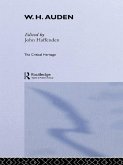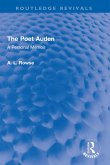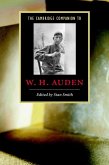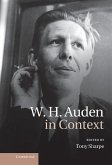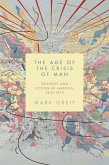How W. H. Auden's emigration to the United States changed the course of postwar American poetry
W. H. Auden's emigration from England to the United States in 1939 marked more than a turning point in his own life and work-it changed the course of American poetry itself. The Age of Auden takes, for the first time, the full measure of Auden's influence on American poetry. Combining a broad survey of Auden's midcentury U.S. cultural presence with an account of his dramatic impact on a wide range of younger American poets-from Allen Ginsberg to Sylvia Plath-the book offers a new history of postwar American poetry.
For Auden, facing private crisis and global catastrophe, moving to the United States became, in the famous words of his first American poem, a new "way of happening." But his redefinition of his work had a significance that was felt far beyond the pages of his own books. Aidan Wasley shows how Auden's signal role in the work and lives of an entire younger generation of American poets challenges conventional literary histories that place Auden outside the American poetic tradition. In making his case, Wasley pays special attention to three of Auden's most distinguished American inheritors, presenting major new readings of James Merrill, John Ashbery, and Adrienne Rich. The result is a persuasive and compelling demonstration of a novel claim: In order to understand modern American poetry, we need to understand Auden's central place within it.
W. H. Auden's emigration from England to the United States in 1939 marked more than a turning point in his own life and work-it changed the course of American poetry itself. The Age of Auden takes, for the first time, the full measure of Auden's influence on American poetry. Combining a broad survey of Auden's midcentury U.S. cultural presence with an account of his dramatic impact on a wide range of younger American poets-from Allen Ginsberg to Sylvia Plath-the book offers a new history of postwar American poetry.
For Auden, facing private crisis and global catastrophe, moving to the United States became, in the famous words of his first American poem, a new "way of happening." But his redefinition of his work had a significance that was felt far beyond the pages of his own books. Aidan Wasley shows how Auden's signal role in the work and lives of an entire younger generation of American poets challenges conventional literary histories that place Auden outside the American poetic tradition. In making his case, Wasley pays special attention to three of Auden's most distinguished American inheritors, presenting major new readings of James Merrill, John Ashbery, and Adrienne Rich. The result is a persuasive and compelling demonstration of a novel claim: In order to understand modern American poetry, we need to understand Auden's central place within it.



